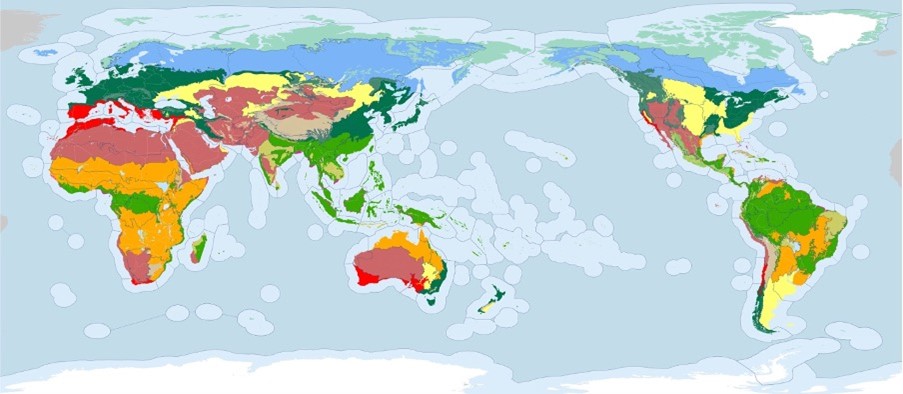Moving towards territorial food systems: where are we at?
Florence Egal, expert in sustainable food systems
Sustainable development can only be achieved through the combination of economic development (including ending extreme poverty), social inclusion, environmental sustainability and good governance (including peace and security)
We are presently facing interconnected crises of nature loss, climate change and land degradation, which affect human health and wellbeing. Agri-food systems are now recognized as the core driver of biodiversity loss in the world, and a contributor to more than one-third of global GHG emissions. At the same time, agri-food systems will need to prepare for the disruptive impacts of climate change on agriculture value chains.
These systems need to be reformed through a combination of three interdependent actions: changing global dietary patterns, protecting and setting aside land for nature, and farming in a more nature-friendly and biodiversity-supporting way. Agriculture Nature-Based Solutions (Ag-NBS) are seen as an effective, long-term, cost efficient approach to tackling sustainable land and water resources management, address declining agriculture productivity, pollution, biodiversity loss and climate change. These practices can help improve water availability and quality as well as restore ecosystems and soils worldwide, while offering substantial health co-benefits and enhancing global food security. They can therefore contribute to more healthy, sustainable and resilient food systems..
The preparation of, and follow up to the 2021 UN Food Systems Summit has raised awareness of the need to transform food systems. and the key opportunity this offers to accelerate progress of the 2030 Agenda for Sustainable development1. Such strategies can indeed contribute to the attainment and articulation of several, if not most, Sustainable Development Goals (SDGs)2 and will require a change in governance3 .This requires a multi-level governance which ensures a rights-based and participatory inclusive which leverages local and traditional knowledge, and ensures representation of Indigenous Peoples, local institutions, women, youth and other under-represented group.
This was followed logically with the launch of the Convergence Initiative on Climate Action and Food Systems Transformation4 at the 2023 UN Climate Change Conference summit in Dubai.
Place-based solutions are therefore key to transforming food systems - the complex network of activities that involves the production, processing, transportation, and consumption of food – and unlocking their global potential to restore biodiversity, limit climate change and provide everyone with enough healthy and nutritious food.
But the establishment of political and administrative borders has usually disregarded environmental (see map below) and cultural issues, and nature and place-based solutions cannot be standardized, applied on and limited to a national basis.

https://www.oneearth.org/bioregions-2023/
While territorial approaches to development5 have been promoted for decades, there is now also increased recognition of the role of cities and local governments in an increasingly urbanized and crisis-affected world. Decentralization policies are key to supporting subnational governance but inter-sectoral harmonization and joint planning will need to be done at regional and municipal level.
But nature-based solutions cannot be limited to national perspectives. Since territories have unique food cultures and physical environments, a bioregional approach to food systems transformation would be more logical and add value to sustainable development policy and planning, in terms of practice-based knowledge, inter-country collaboration and feedback at global level. Increasing resilience of food systems in cross-border “hotspot areas” would be particularly important for crisis management (including conflicts).
The convergence of water, climate action and food systems transformation cannot be postponed any longer if we want a fair, inclusive and sustainable future. And regions have a key role to play.
[1] https://sdgs.un.org/2030agenda
[2] https://sdgs.un.org/es/goals
[3] Policy Brief – Governance for Food Systems Transformation https://www.unfoodsystemshub.org/docs/unfoodsystemslibraries/fss-community/chapter-2/policybrief_governanceunfss.pdf?sfvrsn=edae3afc_
[4] CoP 28 UAE Declaration on Sustainable Agriculture, Resilient Food Systems and Climate Action https://www.cop28.com/en/food-and-agriculture
[5] https://www.donorplatform.org/post/tp4d-territorial-approaches-for-sustainable-development/










































































